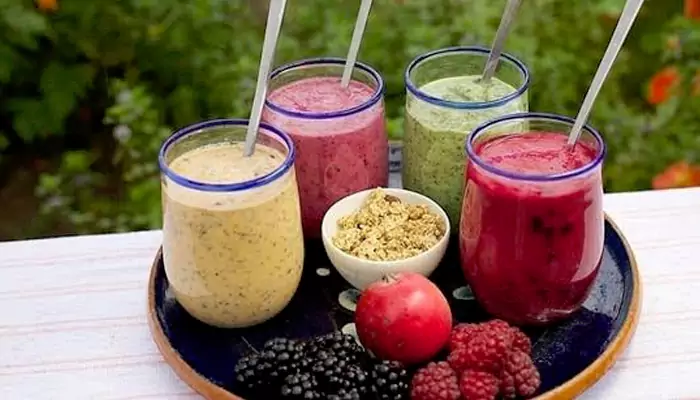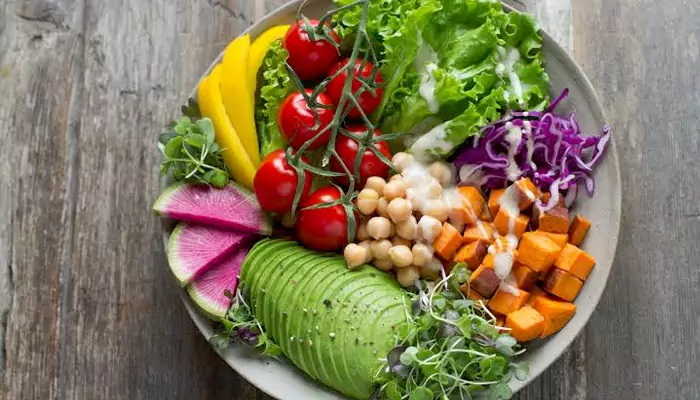Sabzi of the Day - Mustard Greens Supremacy: Health Benefits and Quick, Delicious Recipes
- Sayan Paul
- 1 year ago
- 4 minutes read

Coming from the Brassicaceae plant family, mustard greens have been cultivated for several centuries.
Mustard seeds are obviously a staple in our kitchens, and let's admit it, we can never get enough of their spicy kick. However, it's important to acknowledge the green leaves of the plant as well - mustard greens, which are quite an underrated superfood. These leafy greens boast a strong peppery flavor that can elevate your regular dishes to a whole new level. And packed with nature's goodness, they also benefit your body in numerous ways.

Sarson Da Saag and Makke Ki Roti – A Delicacy During Winters
A member of the Brassicaceae plant family, these are available in several varieties.
A Nutritional Powerhouse
Well, mustard greens are one of the most nutritious veggies out there. One cup serving (raw and chopped) contains:
Protein: 1.6 g
Calories: 15.1 kcal
Carbohydrate: 2.62 g
Fat: 0.235 g
Calcium: 64.4 mg
Fiber: 1.79 g
Iron: 0.918 mg
Sodium: 11.2 mg
Potassium: 215 mg
Vitamin A: 84.6 µg
Vitamin C: 39.2 mg
Mustard greens are a perfect winter vegetable packed with all the necessary antioxidants! #greenveggies #eathealthy #stayhealthy pic.twitter.com/qyf7LsRmt9
— Optimally Organic (@OptimallyO) October 19, 2017
(Credit: Optimally Organic)
Besides these, they are also a good source of vitamin E, vitamin K, zinc, copper, folate, omega-3 fatty acids, and selenium. Also, the list includes lots of antioxidant and anti-inflammatory properties.
The Magic of Mustard Greens - Health Benefits
If consumed regularly, these leafy greens aid in several bodily functions, reducing your risk of a number of issues.
Gut's Best Friend: Thanks to poor eating habits and a bad lifestyle, every other person today suffers from digestive issues. So, if you have any, make sure to incorporate mustard greens into your diet. Rich in dietary fiber, they help enhance the functions of the gut, reducing your risk of gas, indigestion, and even IBS. Also, the high amounts of antioxidants fight free radical damage along the digestive tract and reduce inflammation - both help promote your gut functions significantly.

Immunity Booster: As already mentioned, mustard greens are an excellent source of vitamin C. And as research has confirmed, vitamin C boosts the production of white blood cells in the body, aiding in the functioning of your immune system. Moreover, these greens are also packed with vitamin A, which supports T-cell functions and prevents inflammatory reactions in the body. Studies have found that regular consumption may reduce the risk of colds, flu, and several other issues.

Stronger, Happier Heart: Thanks to their rich nutritional profile, mustard greens are incredibly good for your heart. By increasing the production of bile acids, they help bring down the levels of cholesterol in the body, which further helps your heart health. Also, the high potassium content helps regulate blood pressure levels, while fatty acids prevent plaque formation along the artery. On the other hand, mustard greens are packed with antioxidants like vitamin A, vitamin C, and vitamin K, all of which fight against oxidative stress and reduce inflammation. All these, in the long run, reduce your risk of developing cardiovascular diseases.

Wait, the list doesn't end here. Apart from these, they also promote bone health, boost vision, support liver function, and more.
Burst of Flavors - Some Quick, Delicious Mustard Greens Recipes
Thanks to their strong taste, mustard greens can be made into various delectable dishes. And the best thing is, well, you don't need to spend hours in the kitchen for that.

Sarson Da Saag is definitely a classic option, which is a comforting dish for North Indians during winter (goes well with Makke Ki Roti). Also, you can prepare a smoky stew with loads of other veggies, herbs, and spices. For a light option, you can toss some fresh mustard greens along with lemongrass, lime leaves, lime juice, olive oil, and soy sauce.
Mustard greens become even more delicious as the weather gets cool. So, this winter, make the most out of those greens and stay healthy. And hey, you are welcome!











